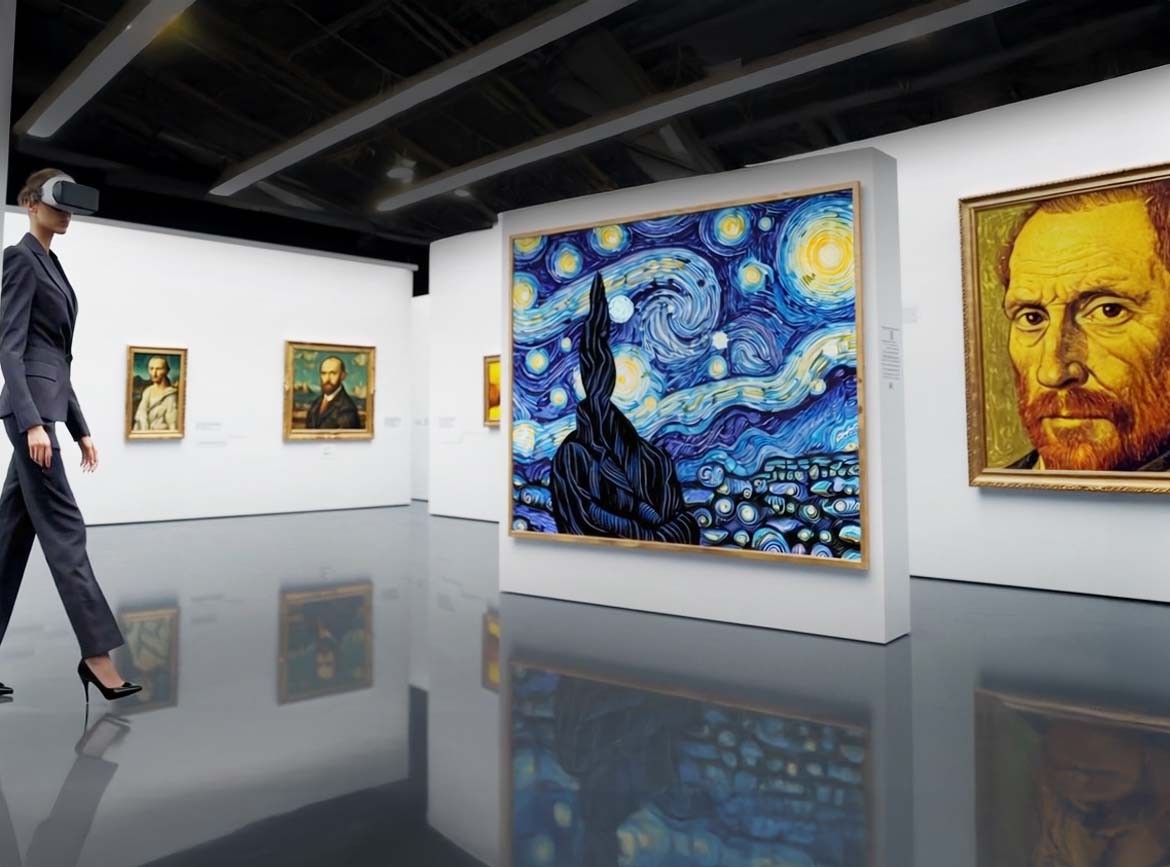The Future of Art: Immersive Experiences with AI and Spatial Computing
Photo: © Ulrich Buckenlei | Virtual art exhibition in Mixed Reality.
How VR, AI, and Spatial Computing Are Revolutionizing the Art World
Imagine stepping into a fascinating art world without leaving your home. Thanks to cutting-edge Virtual Reality (VR), Mixed Reality (MR), and Spatial Computing, you can experience masterpieces in their full splendor and original size. AI-powered image processing ensures that every detail is authentically preserved.
- Immersive experiences: View artworks in their original size and detail.
- AI-supported image reconstruction: Every brushstroke and texture is retained.
- Interactive Mixed Reality: Project masterpieces into your own living space.
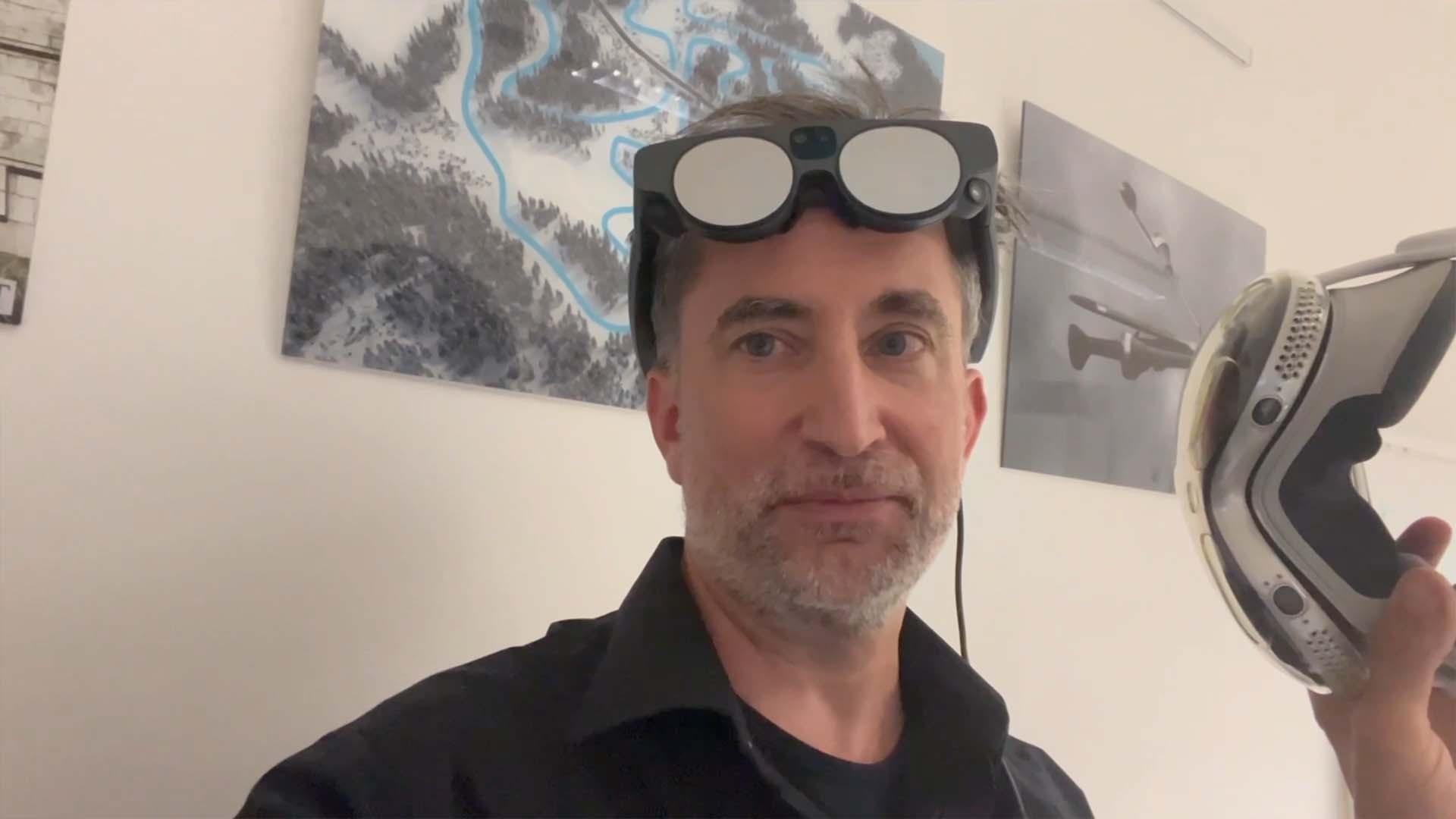
Virtual Art Exhibition
Photo: © Ulrich Buckenlei | An immersive VR experience in the digital museum.
Virtual Museums: Art in a New Dimension
Digital museums offer an interactive alternative to traditional exhibitions. With Spatial Computing, galleries can be entered, works viewed from any angle, and analyzed more deeply using AI-powered tools.
- Real-time interaction: Explore artworks from every perspective.
- Adaptive scaling: Project works into various environments.
- Cultural accessibility: Experience world-famous artworks globally.
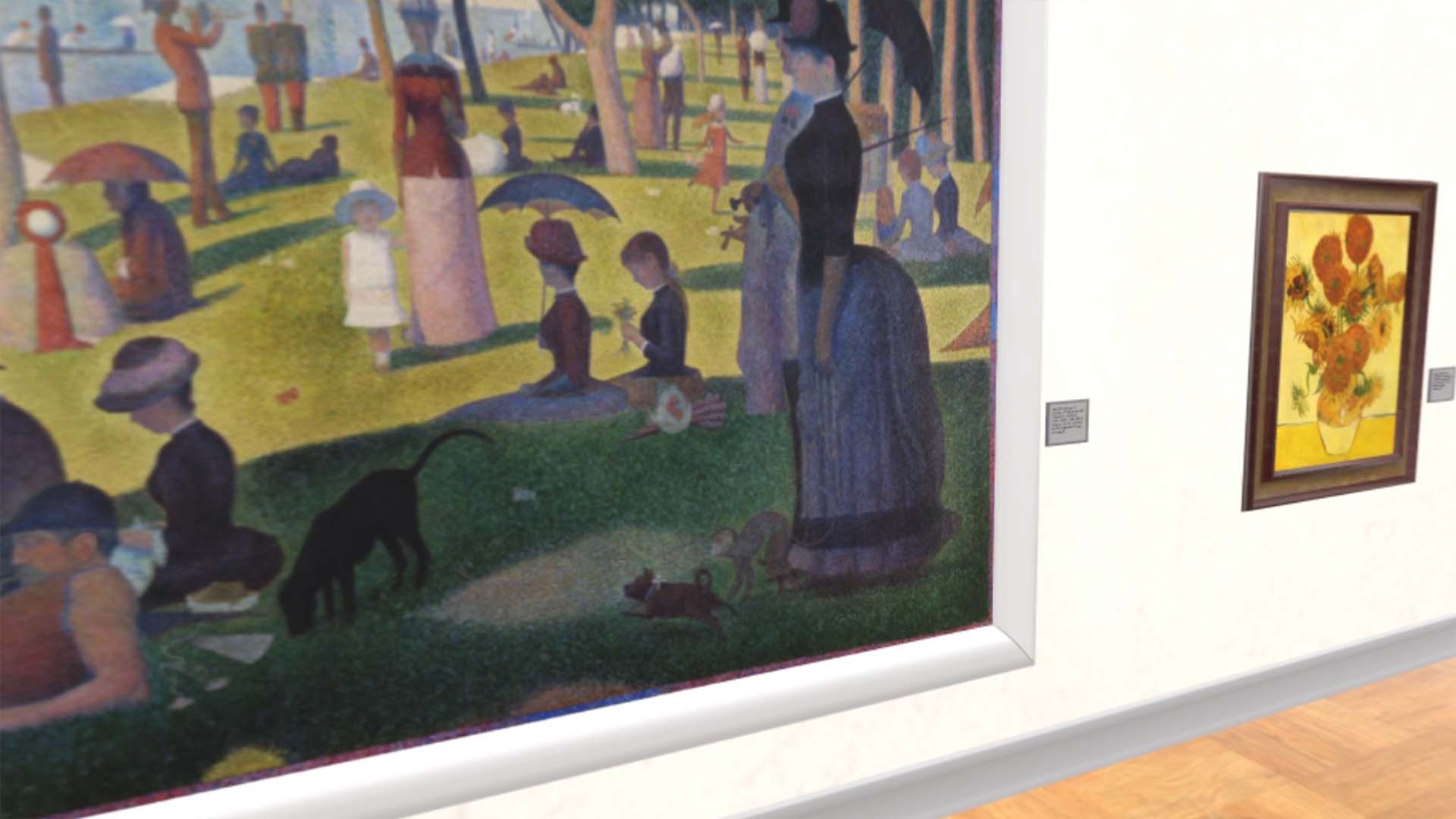
Interactive Art Exploration
Photo: © Ulrich Buckenlei | Visitors experience artworks up close in MR.
AI-Powered Image Processing: Every Nuance Visible
Artificial Intelligence enables unprecedented image reconstruction. Algorithms capture color tones, lighting conditions, and surface structures to present works with the highest accuracy.
- High-resolution texture recognition: Every detail is preserved.
- Enhanced lighting effects: Simulation of realistic illumination.
- Authentic color calibration: Faithful reproduction of historical works.
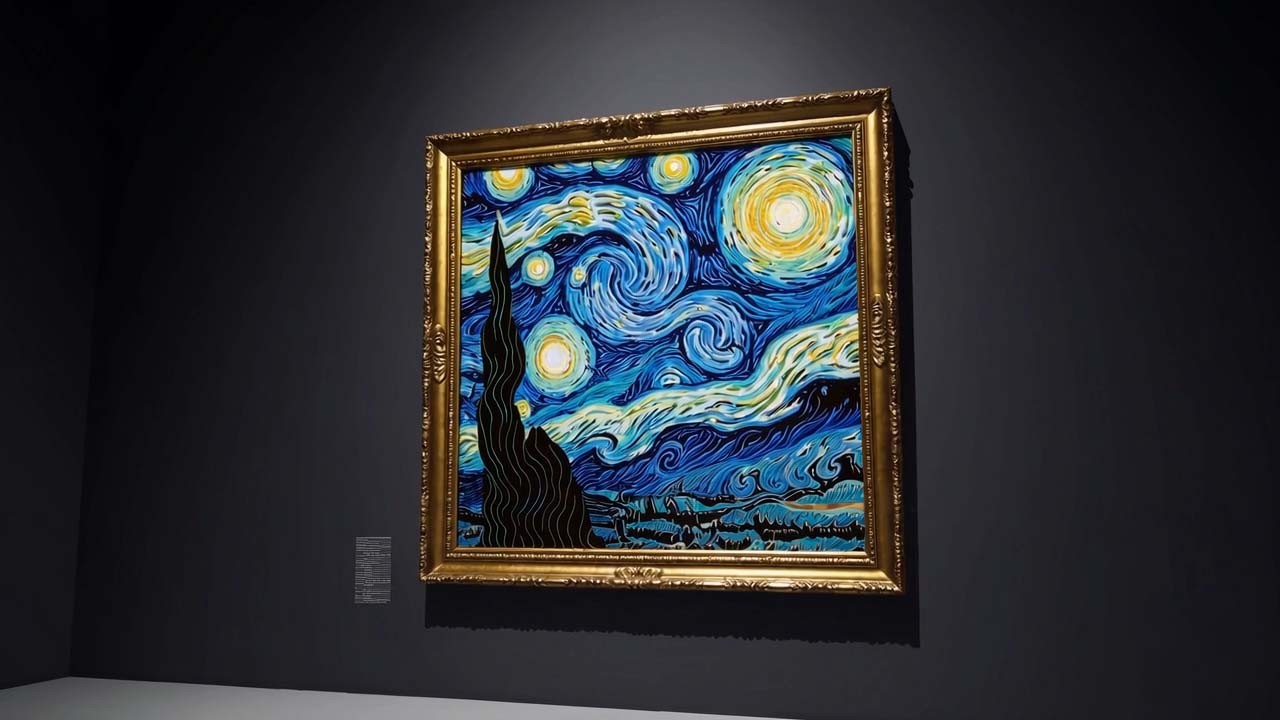
AI-Powered Art Reconstruction
Photo: © Ulrich Buckenlei | Algorithmic analysis of artworks.
Diagram: How VR and AI Are Changing Art Perception
The following diagram illustrates how Virtual Reality and Artificial Intelligence impact the perception and accessibility of artworks. It highlights the key advancements in digital art experiences.
- Increased interactivity: VR and AI enable deeper analysis.
- Improved detail accuracy: Digitized works reach new quality levels.
- Global accessibility: Art becomes available worldwide.
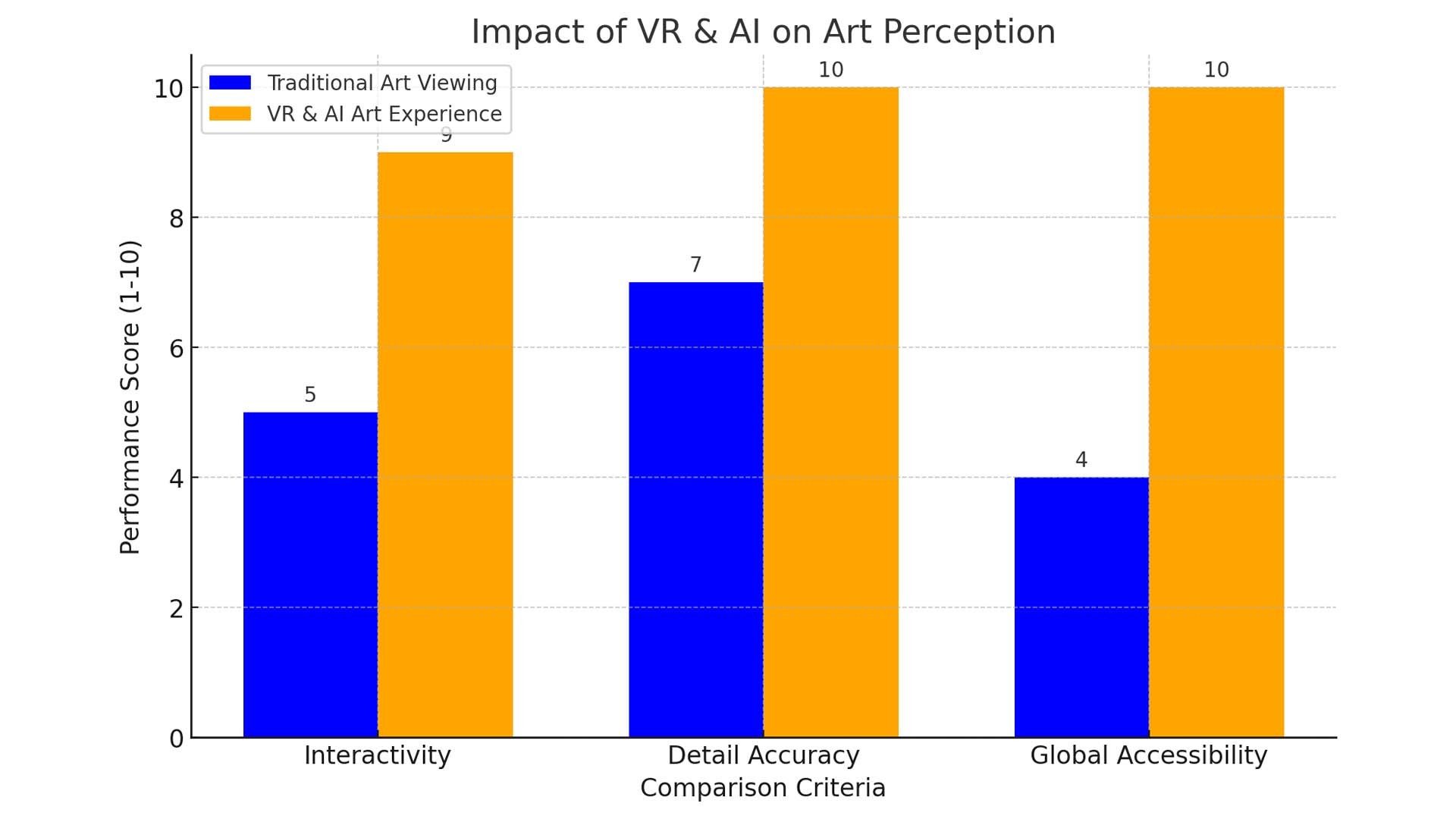
Impact of VR and AI on Art Experiences
Diagram: Developments in digital art experiences.
Video: Immersive Art Worlds in Virtual Reality
Insights into the latest developments in digital museums and AI-powered art presentations.
How Virtual Reality Redefines Museums
Video: The future of virtual art experiences.
Invitation to Collaborate
The Munich Visoric expert team for immersive art and museum experiences is transforming the way art is viewed, experienced, and communicated. With cutting-edge XR technology, AI-powered image reconstruction, and interactive 3D scenarios, we create virtual museums that bring artworks to life with unparalleled detail.
- Consulting: Development of tailored XR solutions for museums, galleries, and digital exhibitions.
- Technology Integration: Implementation of virtual and mixed reality for immersive art viewing.
- AI-powered Reconstruction: High-resolution digitization and highly detailed 3D models of artworks.
Leverage the potential of immersive technologies to make art accessible in entirely new ways.
Contact our Munich Visoric expert team and shape the future of art and museum experiences with us!
Contact Persons:
Ulrich Buckenlei (Creative Director)
Mobile: +49 152 53532871
Email: ulrich.buckenlei@visoric.com
Nataliya Daniltseva (Project Manager)
Mobile: +49 176 72805705
Email: nataliya.daniltseva@visoric.com
Address:
VISORIC GmbH
Bayerstraße 13
D-80335 Munich


